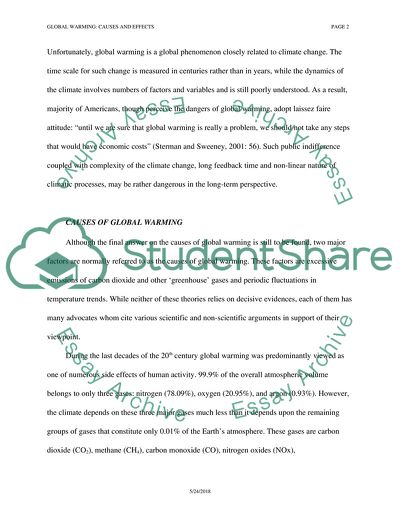Cite this document
(Global Warming: Causes and Effects Article Example | Topics and Well Written Essays - 1500 words, n.d.)
Global Warming: Causes and Effects Article Example | Topics and Well Written Essays - 1500 words. https://studentshare.org/environmental-studies/1703653-global-warming
Global Warming: Causes and Effects Article Example | Topics and Well Written Essays - 1500 words. https://studentshare.org/environmental-studies/1703653-global-warming
(Global Warming: Causes and Effects Article Example | Topics and Well Written Essays - 1500 Words)
Global Warming: Causes and Effects Article Example | Topics and Well Written Essays - 1500 Words. https://studentshare.org/environmental-studies/1703653-global-warming.
Global Warming: Causes and Effects Article Example | Topics and Well Written Essays - 1500 Words. https://studentshare.org/environmental-studies/1703653-global-warming.
“Global Warming: Causes and Effects Article Example | Topics and Well Written Essays - 1500 Words”. https://studentshare.org/environmental-studies/1703653-global-warming.


